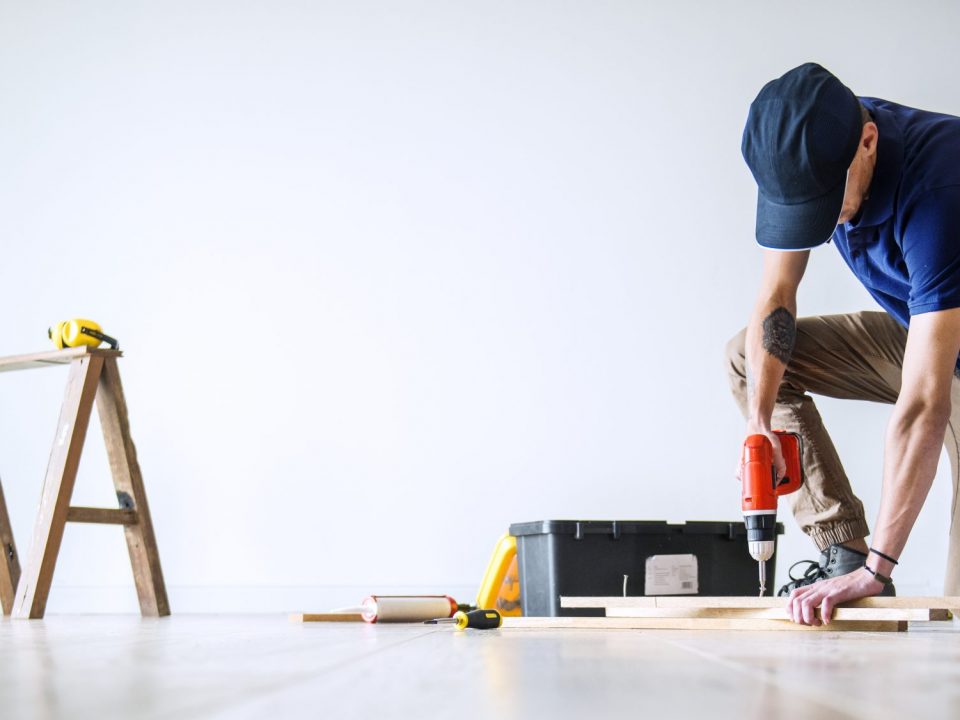What to Expect from a Home Inspection

Real Estate Closing Process for Refinance Transaction
November 15, 2021
How to Avoid Delays in Closing
November 15, 2021A home inspection involves a visual examination of the house's physical structure and mechanical systems as well as roof, ceilings, walls, floors, windows, and doors.
The inspector will test major appliances, evaluate the heating and air-conditioning system, inspect the plumbing and electrical systems, and perhaps go into the attic and basement.
The fundamental objective of a home inspection is to find problems with the structure of the house. Inspectors won't tell you if you're getting a good bargain on the house or give you their judgment on the sale price.
When will the house be inspected?
After the seller has accepted the offer, the buyer will have a home inspection before buying the house. Once you've signed a contract, you'll want to schedule a home inspection as quickly as possible to provide time for extra assessments or negotiations with the seller.
The inspection should take at least seven to ten days to complete during the home-buying process.
What factors should be taken into account before hiring a home inspector?
It is your responsibility as the buyer to hire a home inspection. Even if the seller offers to share their home inspection report or says the house has been pre-inspected, you should schedule your own inspection so you can personally verify the inspector.
A lot of buyers employ the first inspector they come across. But don't be satisfied with anything less. Investigate each house inspector thoroughly and consider the following factors:
- Training, certificates, and qualifications
- Understanding of building codes
- Years spent examining homes
- References and referrals
- Work experience in a similar field

What is the best place to look for a house inspector?
Family, friends, and your real estate agent can all provide you with references. Sources you can trust work in your best interests. If you want to be extra sure, see if the inspector is a member of a trade group like the Canadian Association of Home and Property Inspectors (CAHPI). Registered members follow those organizations' norms and standards.
What is the cost of a house inspection?
It depends on the house's location, size, and age. On the other hand, The cost of a regular examination ranges from $300 to $500. Older or bigger homes will have more potential problems and will take longer to check. As a result, the cost of a house inspection varies.
What takes place during a house inspection?
A thorough walk-through of the home you want to buy should take several hours for a home inspector. During that time, the inspector will take notes and photographs and remark on what they observe if you're accompanying them. Most importantly, the inspector will provide you with an unbiased assessment of the home's condition, free of the emotional attachment you've been on during the home-buying process.
An inspector's opinion on child safety problems identified in the house will vary depending on the inspector's expertise and qualifications. Furthermore, a home inspector does not always establish whether or not your home complies with local building regulations.
They also won't say anything about aesthetics until it reveals a broader issue. Inspectors should have a good eye for detail, but they won't be able to notice what isn't visible. Hidden bugs, asbestos, mold, and other potentially harmful items may go undiscovered as a result.
The septic tank, for example, will not be covered because it is not easily accessible. Such problems may necessitate specialist evaluations.
The Inspector Isn't Going To Look At Everything.
In most cases, inspectors only look for issues that are visible to the naked eye. To uncover hidden flaws, they won't be ripping down walls.
Inspectors will not put themselves in danger. They won't climb up to inspect for missing or broken shingles if the roof is too high or steep. Instead, they'll study it using binoculars.
They, too, are incapable of foreseeing the future. While an inspector may give you an estimate of how long your roof will last, they cannot predict when it will need to be replaced.
Home inspectors inspect the home as a generalist. A standard inspection does not always involve a comprehensive examination of:
- Swimming pools
- Wells
- Septic tanks
- Work on structural engineering
- The foundation of a house
- Chimneys and fireplaces
For example, when it comes to wood-burning fireplaces, most inspectors will open and close dampers to ensure they're operating, inspect chimneys for obstructions such as bird's nests, and note whether they feel a more comprehensive safety inspection is necessary.
Conclusion
A home inspection can assist you in making a better-educated decision regarding the property you're contemplating purchasing. A home inspector can spot possible problems and give you a clearer sense of how much care the property will need in the future.
A comprehensive home inspection may save you hundreds of dollars in unforeseen repairs – or prevent you from buying a money pit unknowingly.
About the Author
Rahman Muzaffar
Assistant Manager, Real EstateTreadstone Associates
1 (844) 900 1070



